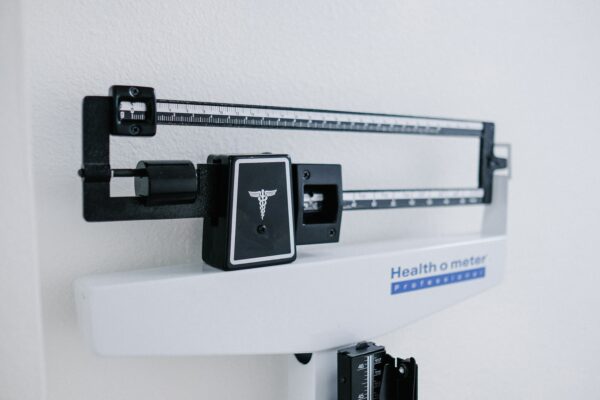Photo by Kenny Eliason on Unsplash
When embarking on a weight loss journey, the scale often becomes our go-to tool for tracking progress. But did you know that weight loss can be measured in various ways? Diversifying your methods of measurement can provide a more comprehensive view of your success and help you stay motivated on your path to a healthier you. Here are ten “weighs” to help you on your way.
1. Body Measurements
One of the most straightforward alternatives to the scale is taking body measurements. Use a tape measure to track changes in your waist, hips, chest, arms, and thighs. Over time, you’ll notice inches melting away, even if the number on the scale remains steady. You might also see where some body parts change quicker than others. This is also dependent on the types of exercise you’re doing.
2. Clothing Fit
The way your clothes fit is a tangible indicator of your progress. Pay attention to how your favorite jeans become looser or how you comfortably slip into that dress that used to feel snug. It’s a rewarding way to measure your journey. Later, you might be using different loops on a belt or even feel you need to buy new, better-fitting clothes.
3. Body Composition Analysis
Body composition analysis measures the percentage of fat, muscle, and water in your body. This method offers a more accurate representation of your physical health than weight alone. You can use tools like body fat scales or get a professional analysis. These can vary widely in their accuracy and prices, but offer interesting insights.
4. Progress Photos
A picture is worth a thousand words. Regularly take photos of yourself from various angles to visually track your transformation. Sometimes, seeing the changes in your body is more motivating than any numbers. It’ll always be tempting to “suck in” or change your posture as you pose, but try to keep consistent positioning, lighting, and angles to see body changes, rather than photography changes.
5. Fitness and Strength Levels
Your fitness and strength levels are excellent indicators of your progress. Notice how your endurance improves during workouts, or how you can lift heavier weights or perform more push-ups. These functional changes reflect a healthier, stronger you. Often times, increasing muscle mass is at odds with that number on the scale, but your fitness is something you should be able to feel.
6. Energy and Vitality
Speaking of, pay attention to how you feel! Increased energy levels, improved sleep, and reduced stress are signs of improved health that may not be directly related to your weight but are crucial markers of success.
7. Health Metrics
Track your health metrics like blood pressure, cholesterol levels, and blood sugar levels. These measurements provide insight into your overall health improvements, which might not correlate directly with weight loss but are vital indicators. Like the progress photos, try to track these under similar conditions because they can change over the course of the day or immediately after exercising or meals.
8. Mindset and Confidence
Increased confidence, improved body image, and a positive mindset are significant achievements on your weight loss journey. These intangible benefits are equally valuable as any numerical measurement.
9. Behavioral Changes
Celebrate the positive changes in your habits. Are you making healthier food choices, drinking more water, or practicing portion control? These behavioral shifts indicate progress towards a healthier lifestyle. Notice your own cravings (or lack thereof) and enjoy that progress.
10. Support and Accountability
Lean on your support system and accountability partners. Their encouragement and recognition of your efforts can be a powerful way to measure success.
In conclusion, weight loss is a multi-faceted journey, and there are numerous ways to measure your progress beyond the scale. By diversifying your methods of measurement and recognizing the non-scale victories, you can stay motivated and focused. So, remember, it’s not just about the numbers – it’s about your overall well-being and the positive changes you’re making in your life. Keep up the great work, A-Listers!
